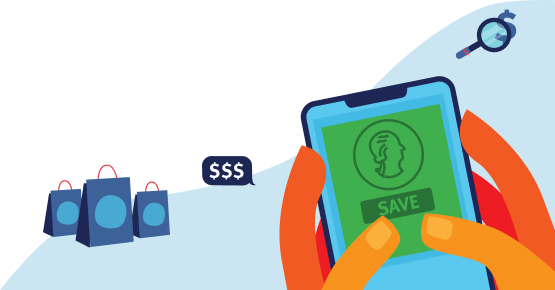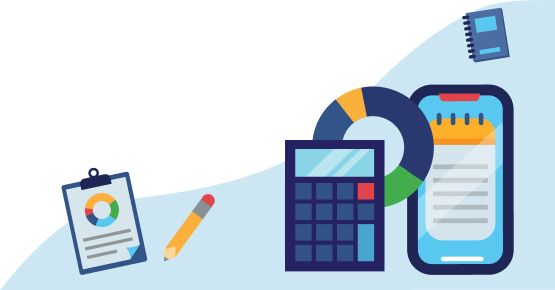
Being Financially Responsible
Your students will learn about managing money wisely. These resources will help them build a strong foundation for a financially responsible future.

Parents as Financial Role Models
The guide provides tips for parents for discussing the family’s financial priorities with their teens. As a family, they will also explore money habits, setting financial goals, and making financial conversations a priority.
Imagining Your Financial Future
Introduce your students to personal goal setting to begin creating their vision for the future and taking steps to achieve it.

Imagining Your Financial Future
This module helps your students to think about their goals for the future. They will learn about goal-setting and financial success strategies to help them reach those goals.

From Dream to Reality
Work with your students to develop a personal vision board that represents their future. They will consider their future careers, families, and lifestyles, and develop action plans to achieve their goals.
Supplemental Resource Links
Designing Dreams: Financial Planning
Use these free curricular resources to help your students determine personal and financial goals and develop financial plans.
Mapping Your Money Journey
Invite students to take a 30-question survey to see where they are on their financial journey. Students who take the interactive version will get their results immediately. A printed version is also available with instructions for how to score and interpret the results.
How to Achieve Your Financial Goals
Your students can read about best practices for setting goals, determining milestones, and developing good money habits.
Setting SMART Goals
Help your students make connections between personal and financial goals and reinforce why they should set SMART (Specific, Measurable, Attainable, and Realistic) financial goals.

Setting SMART Goals
This module uses the SMART model (specific, measurable, achievable, relevant, and time bound) for goal-setting. Students will learn how to identify financial goals. They will walk through the importance of setting SMART goals and determine whether a goal meets their criteria.
Supplemental Resource Links
Setting Financial Goals
Use these free curricular resources to help your students explore their goals for the future, what decisions in life are goal-worthy, and how goal setting can help with money management. After learning about and practicing writing SMART goals, students learn the importance of tracking progress toward a goal. (To access additional educator resources, you will need to register for a free account and verify that you are an educator. Once logged in, the link above will take you directly to the resource.)
SMART Goals Worksheets
This worksheet helps students outline a SMART goal, create an action plan to accomplish it, and identify potential sources of support.
StickK
You and your students can use StickK (and similar apps and websites) to set goals, track progress, and get support.
5-Minute Film Festival: Freedom to Fail Forward
Use these short videos with your students to learn how to embrace inevitable failures and use those experiences as valuable tools for growth.
Examining Money Habits
Your students will examine current financial habits, how those habits may impact their future, and how to reframe habits towards success.

Examining Money Habits
Students will learn how money habits include the ways they spend, save, and talk about money. They will explore the differences between good and bad money habits and how to form good money habits.
Supplemental Resource Links
Understanding Who Shapes Your Money Decisions
Students’ money habits are likely to be influenced by the people around them. Use resources in this lesson to help students explore who is in their “money circle” and how each person’s money personality might influence or shape their own.
Values, Goals, and Financial Decisions
In this lesson, students examine their values and goals and consider the impact each has on their financial decisions. Cultural influences are also explored.
Behavioral Economics
Explore the resources in this unit plan from NGPF with lessons on values and money. It also includes concepts from the field of behavioral economics such as loss aversion, the endowment effect, sunk costs, herd mentality, and confirmation bias.
Financial Personality Quiz
After answering 10 questions, students can find out if they are value-based planners, laid-back balancers, short-term strategists, or confident money managers. The resulting personality type is explained along with potential challenges people with this personality might face with their finances.
What’s Your Money Sign?
In this seven-minute video, the hosts of the popular PBS video series, Two Cents, explore money signs or personalities. Challenge students to consider which of the six money signs they relate to the most: risk takers, hoarders, social spenders, engineers, moguls, or ostriches.
Budgeting and Success
Your students will consider this question: How does developing a budget help you manage your money? Students will learn how to build a budget and harness tools avoid pitfalls along the way.

Budgeting for Success
Students examine why budgeting is important and learn about different approaches to budgeting, including traditional category-based budgeting, simplified 50-20-30 budgets, and how technology can make budgeting easier. Students also consider how a teen’s budget might compare to that of an adult and/or family member

Budgeting Dilemmas
After learning what makes up a budget, student “financial counselor” groups will identify issues and present solutions for the budgets of fictional clients. They then will share recommendations with the class and offer feedback to other groups.
Supplemental Resource Links
The Bean Game
Use this game where your students learn the value of using a budget in deciding how to live on a “20 Bean Salary.”
Budget Calculator
After entering income and expenses, use this calculator to determine whether a budget is balanced.
Create My Monthly Spending and Saving Plan
Invite students to use the interactive or print version of this spending and saving plan to create a monthly budget. The interactive version “does the math” for them. At the end, find out if students’ income covered all of their expenses.
Spending Plans
In this lesson, students complete a spending plan for the Brown family and give them advice. The lesson includes a spending plan template in Excel. (To access these resources, you will need to register for a free account and verify that you are an educator. Once logged in, the link above will take you directly to the resource.)
Budgeting Basics
This 5-minute video kicks off by comparing a budget to a battle plan and suggests students “take a cue from George Washington.” Students will be encouraged to look at their current spending and place it into one of five budget categories: essentials, security, goals, lifestyle, and discretionary spending. The video concludes with some of the benefits of budgeting, including being less stressed about finances.
Spending Wisely
Show your students how to make informed spending decisions. They will explore resources to track personal spending, differentiating between wants and needs, and making informed spending decisions.

Spending Wisely
During this module, your student will explore what they should think about before making a purchase. They will learn to analyze their spending choices and the factors that affect their spending, so they can think before they spend.
Supplemental Resource Links
Can You Pay Your Bills? Spending and Budgeting
Use this curricular resource to teach students how financial recordkeeping is a sound financial practice, prioritize wants and needs, and develop a budget.
Smart Consumer Spending
Use this lesson to have students compare store-brand and name-brand items and then learn to make informed purchases. (To access these resources, you will need to register for a free account and verify that you are an educator. Once logged in, the link above will take you directly to the resource.)
Advertising: Dollars and Decisions
In this lesson, students learn about advertising in history and the impact of advertising in modern day.
How Social Media Keeps You Poor
Encourage students to watch this 10-minute video and reflect on social media’s influence on their own personal spending decisions. Discuss where and how often they see branded content, how their browsing and search patterns influence ads, and if advertising to children and teens should be more tightly controlled.
Stay Focused on My Goals
Invite students to review tips and strategies for staying focused on their goals, blocking unproductive messages, and resisting impulse spending. Challenge them to consider which of the strategies presented would work best for them and, if possible, what they would add to the list.
